We often hear, “do not judge a book by its cover.” Perhaps not in judging the book entirely, but the cover does form an important visual relationship to the book
Jhumpa Lahiri explores this relationship of text and image in her latest book, The Clothing of Books.
Here are some intriguing quotes by Jhumpa Lahiri on the covers of books:
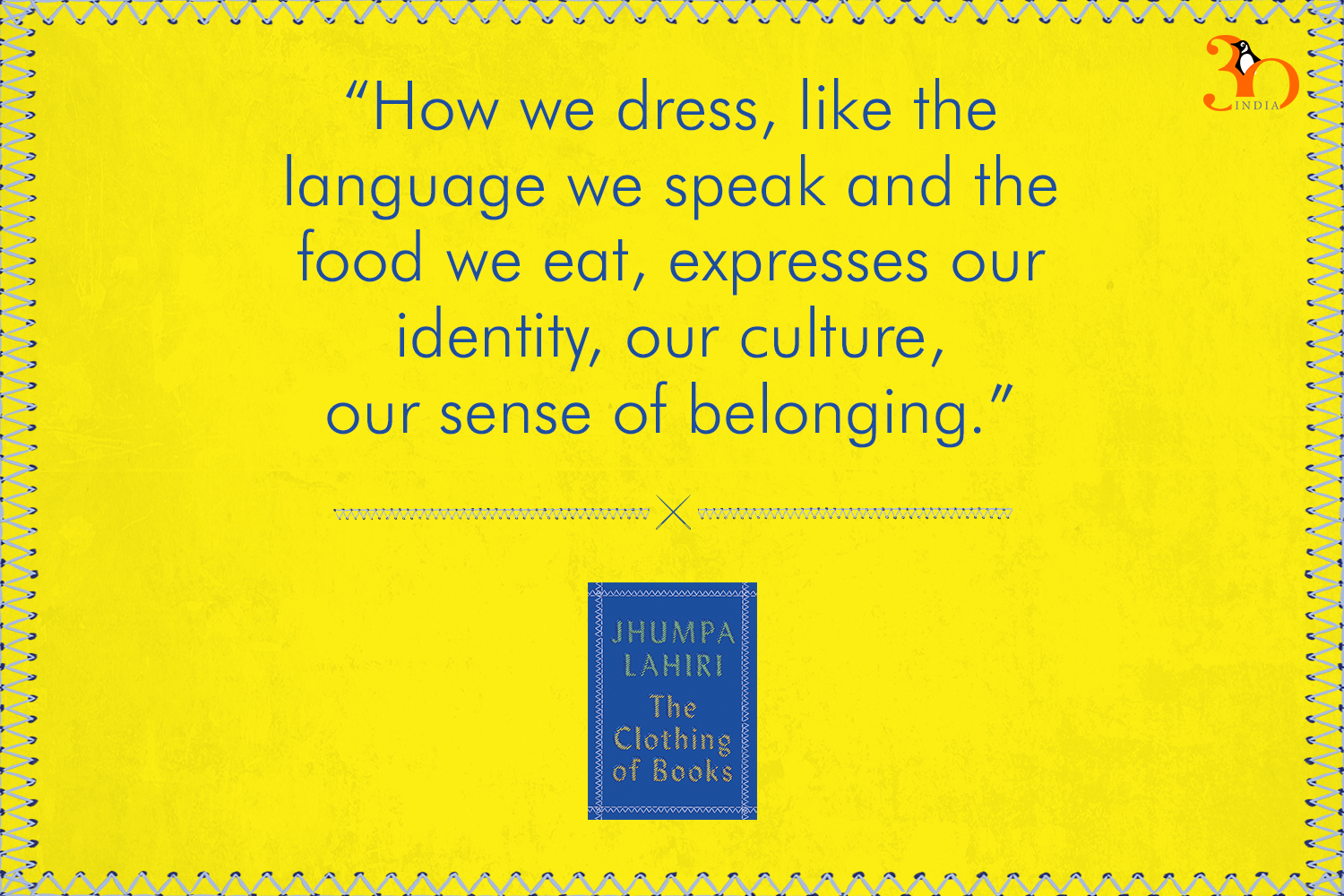
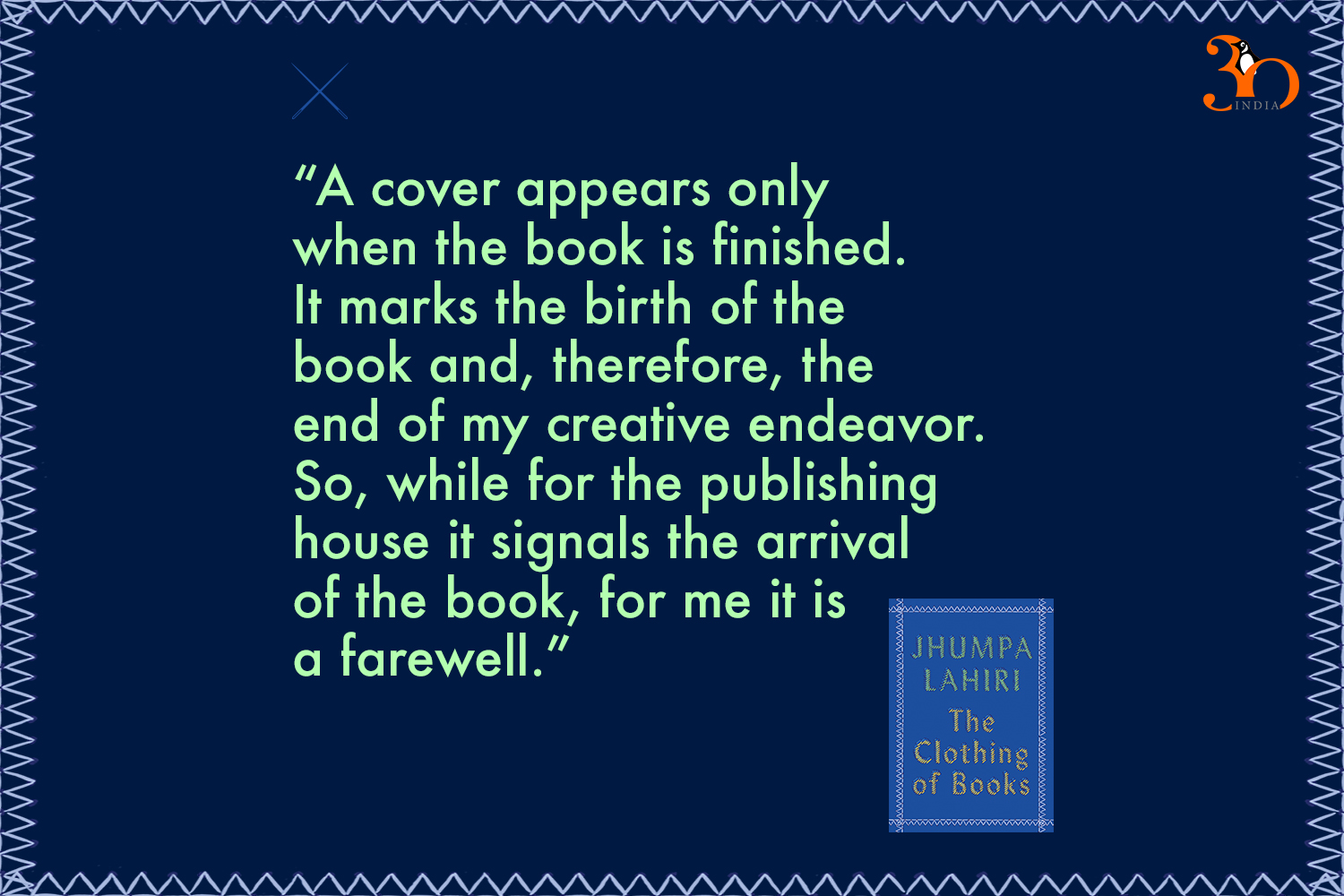
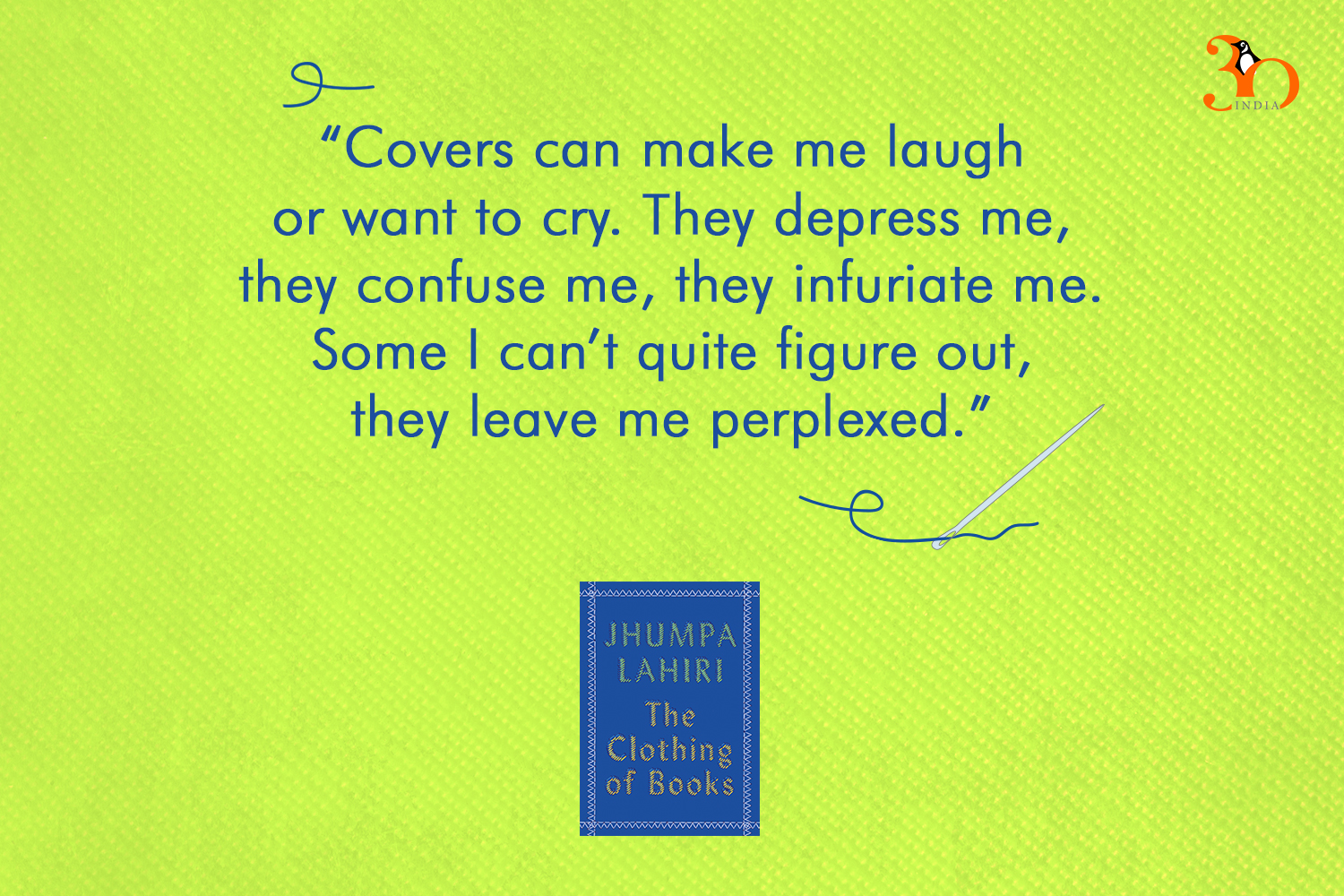
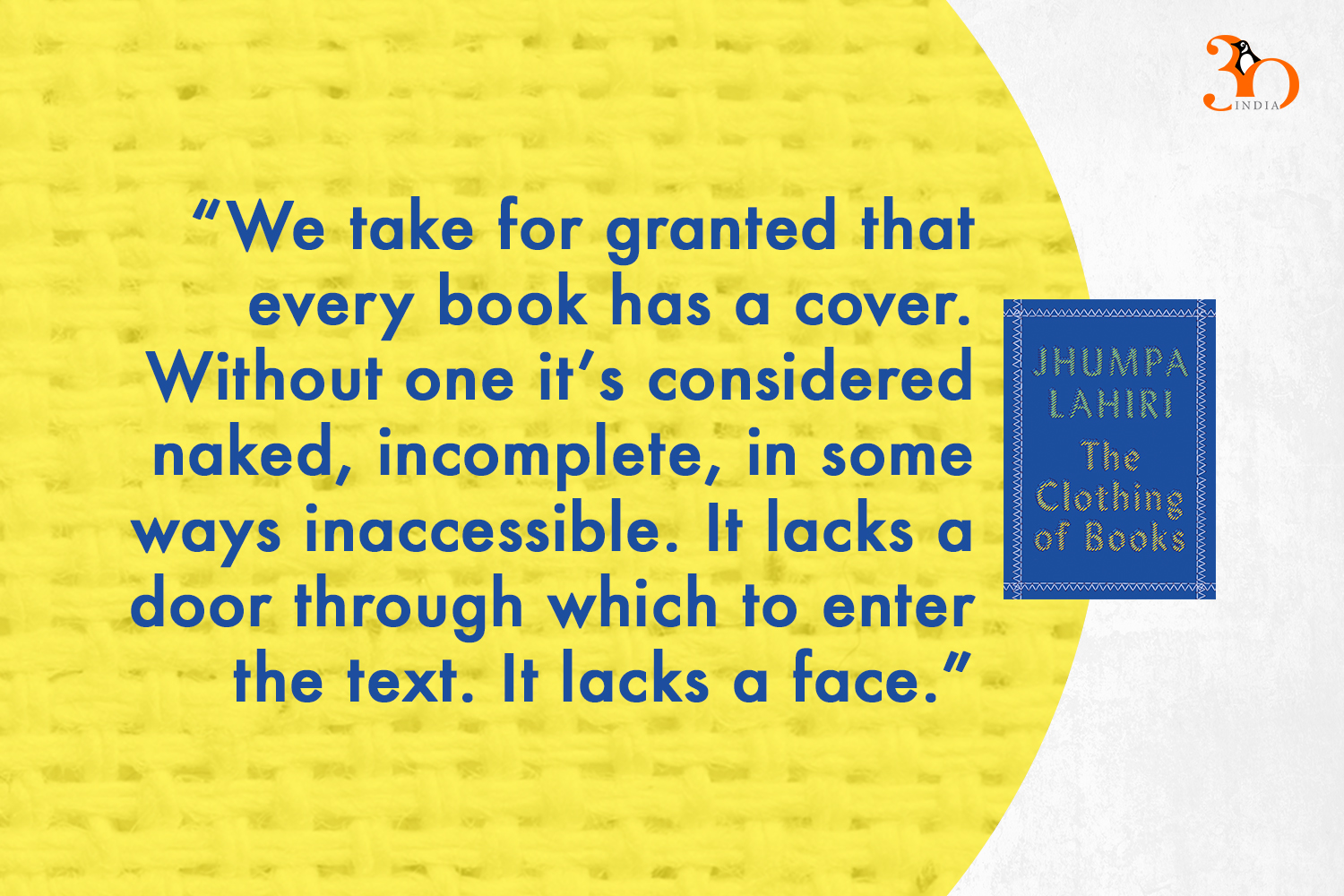
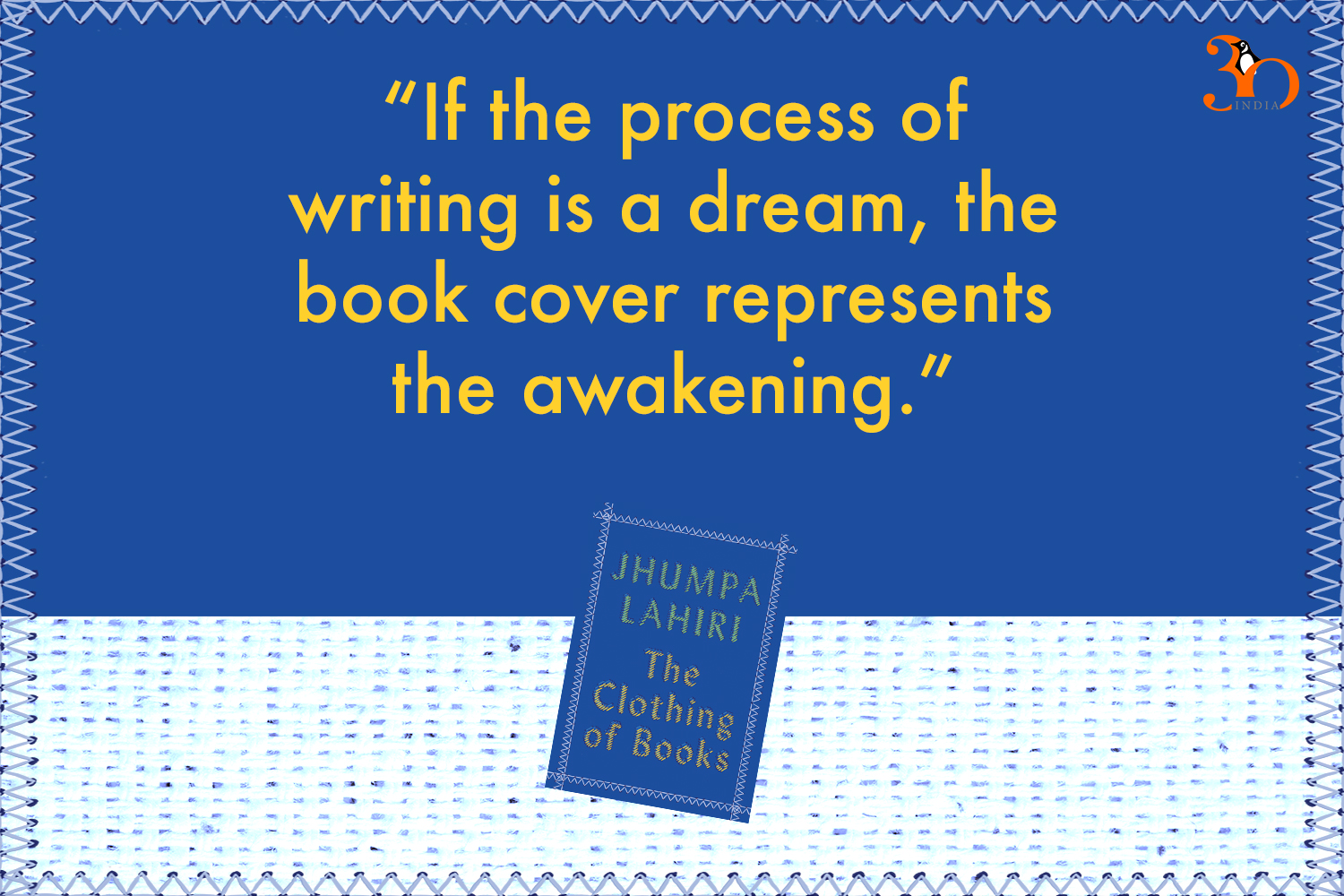
Probing the complex relationships between text and image, author and designer, and art and commerce, Jhumpa Lahiri explains what book covers and designs have come to mean to her in The Clothing of Books.

Tag: literature
Seven Derek Walcott Quotes that will Etch Him in Your Memory Forever!
Born in Castries, the St Lucia capital, Sir Derek Walcott’s first poems, which were self-published, emerged in 1948. His work celebrated his Caribbean culture, enhanced by an encyclopedic knowledge and insight in world history, global cultures and triumphs of humanity.
As a youngster, he struggled with questions of race and his passion for British poetry, describing it as a “wrestling contradiction of being white in mind and black in body, as if the flesh were coal from which the spirit like tormented smoke writhed to escape.”
Sir Walcott won the Nobel Prize in 1992, two years after his epic book-length poem Omeros, which brought him worldwide acclaim, was published. His dazzling, painterly work earned him a reputation as one of the greatest writers of the second half of the 20th century.
Today, as we remember him, let us have a look at some of his quotes.







RIP Sir Derek Walcott.
A Lesser-Known Poem by Robert Frost that You Must Know Of
‘Out, Out—’
The buzz saw snarled and rattled in the yard
And made dust and dropped stove-length sticks of wood,
Sweet-scented stuff when the breeze drew across it.
And from there those that lifted eyes could count
Five mountain ranges one behind the other
Under the sunset far into Vermont.
And the saw snarled and rattled, snarled and rattled,
As it ran light, or had to bear a load.
And nothing happened: day was all but done.
Call it a day, I wish they might have said
To please the boy by giving him the half hour
That a boy counts so much when saved from work.
His sister stood beside him in her apron
To tell them ‘Supper.’ At the word, the saw,
As if to prove saws knew what supper meant,
Leaped out at the boy’s hand, or seemed to leap—
He must have given the hand. However it was,
Neither refused the meeting. But the hand!
The boy’s first outcry was a rueful laugh,
As he swung toward them holding up the hand
Half in appeal, but half as if to keep
The life from spilling. Then the boy saw all—
Since he was old enough to know, big boy
Doing a man’s work, though a child at heart—
He saw all spoiled. ‘Don’t let him cut my hand off—
The doctor, when he comes. Don’t let him, sister!’
So. But the hand was gone already.
The doctor put him in the dark of ether.
He lay and puffed his lips out with his breath.
And then—the watcher at his pulse took fright.
No one believed. They listened at his heart.
Little—less—nothing!—and that ended it.
No more to build on there. And they, since they
Were not the one dead, turned to their affairs.
— Robert Frost
6 Sessions to Look Out for at JLF ’17
It’s that time of the year!
10 years since the first JLF, the Festival has grown into the world’s largest free event of its kind. Having hosted 1300 speakers and welcomed nearly 1.2 million book lovers, its success has been astonishing and heartwarming.
Some of the biggest Penguin authors have rocked the stage at JLF and this year promises to be even better. From commercial superstars to critical bigwigs, this year we are getting the crème de la crème from our author roster.
Here are a few of the sessions you’ll not want to miss at the Festival.
Gulzar
Gulzar and Pavan K. Varma in conversation

People usually run out of superlatives when talking about the evergreen Gulzar. One of the greatest artists to ever grace the JLF, Gulzar Sahib’s session, along with Pavan K. Varma, will be on his latest work – Suspected Poems. You’ll not want to miss his musings on poetry, literature and the state of the world.
Tabish Khair
Manju Kapur and Tabish Khair in conversation with Ashok Ferrey

Currently teaching English at Aarhus University in Denmark, Tabish Khair was born and educated in Bihar. At the session, the former journalist will be talking to Ashok Ferrey about the context and inspiration for his works. He will also talk about his book Jihadi Jane, a powerful novel about two Muslim girls who decide to join ISIS.
You can also catch him at the Festival along with Saeed Naqvi, Qaisra Shahraz, Sadia Dehlvi and Ornit Shani as they talk of the conflicts and polarities of being an Indian Muslim in an increasingly divided world.
Ashok Ferrey
Ashok Ferrey, Kyoko Yoshida and Marina Perezagua in conversation with Sunil Sethi

Ashok Ferrey will be in conversation with Sunil Sethi on the pursuit of fiction that involves a leap of faith between material and literary reality. He will be joined by other notable contemporary writers as they also discuss how writers enter and access fictional journey. The bestselling Sri Lankan author will also explore the devil within as he discusses his latest book The Ceaseless Chatter of Demons.
From talking about the thin red line between a person’s beliefs and politics with Tabish Khair to joining Ashwin Sanghi on his talk about the art of writing thrillers, Ashok Ferrey will also be at various other sessions with other authors.
Ravinder Singh
Ira Trivedi and Ravinder Singh in conversation with Lucy Beresford
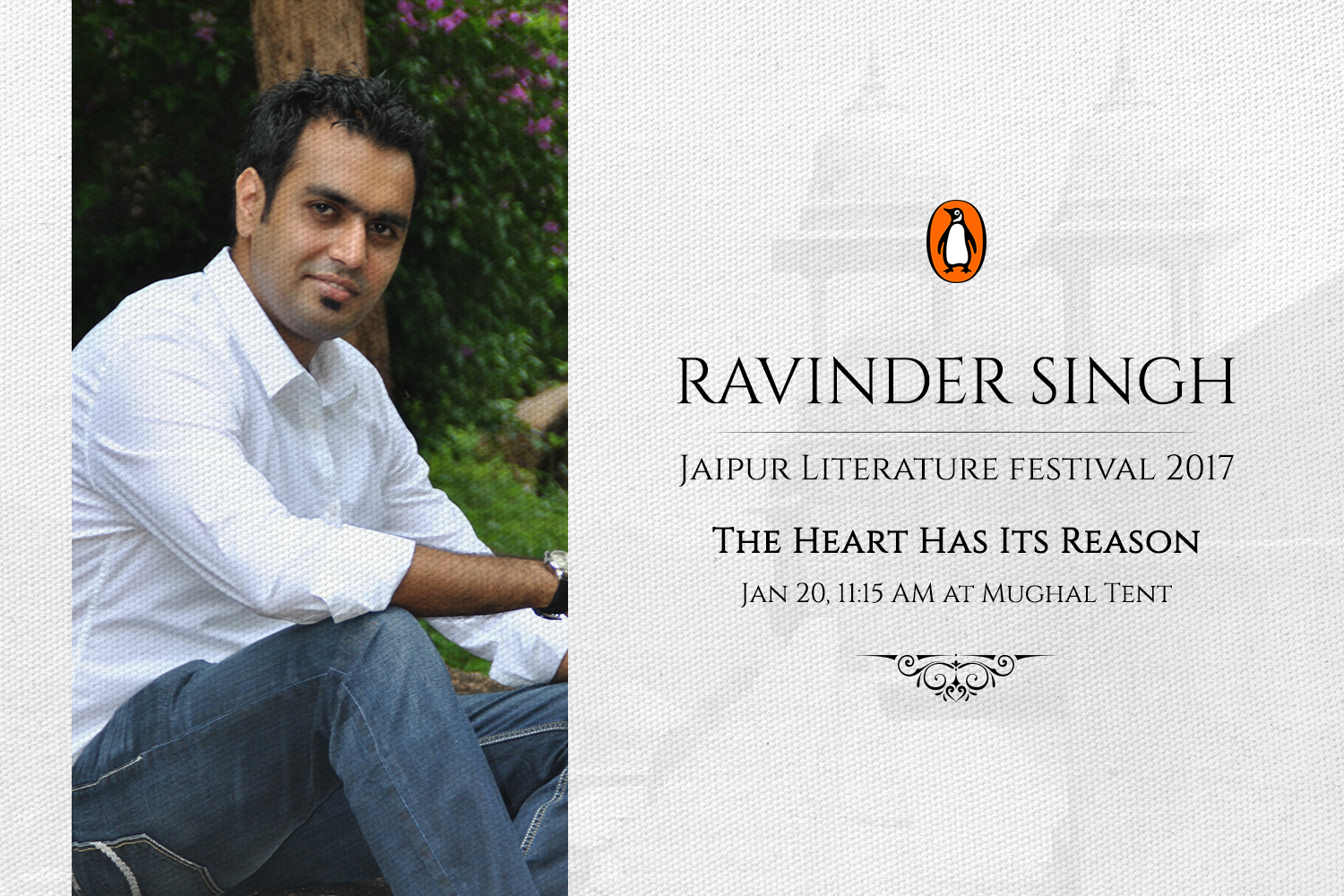
Romantic fiction reaches out across time and history to every successive generation with tales of love. The King of Romance, Ravinder Singh’s session is about love in contemporary India. The author who is known for writing from the heart, about the heart will speak about the psychology and the changing mores of love in our times.
Devdutt Pattanaik
Devdutt Pattanaik introduced by Amrita Tripathi

Ancient Greece and India have both bequeathed a lasting body of myth to the world. In his latest work Olympus, Devdutt Pattanaik attempts to understand how an Indian reader raised on a steady diet of local myths and legends might respond to classical Greek mythology. By reversing the gaze, he explores the fascinating connections between these stories and sagas. At the Festival, Pattanaik will talk about both the mythologies and their lasting legacy.
Devdutt Pattanaik will have two more sessions at JLF – on the history and legacy of the Vedas and on his book The Girl Who Chose.
Arshia Sattar
Arshia Sattar and Volga in conversation with Vayu Naidu

A symbol of chastity and loyalty, the goddess Sita has evolved into a feminist icon for her silent strength and endurance. In her session, Arshia Sattar will talk about her highly acclaimed translation of the ‘Uttara Kanda’. She will talk about the sacrifice, choice and the complex moral universe of the Ramayana.
Arshia Sattar will also be in various other sessions at the Festival discussing atheism in the ancient world to understanding the brilliant A.K. Ramanujan.
———
The themes of equity and democracy run through the Festival’s veins bringing humanitarians, historians, politicians, business leaders, sports people and entertainers together on stage. Access to these renowned thinkers along with some of the finest writers in the world provides a potentially life-changing opportunity to visitors.
We hope to see you at Jaipur!
—————–
6 Things You Probably Didn’t Know About Haruki Murakami
Haruki Murakami is one of the most famous novelists at the moment. Until age 29, however, he never considered himself capable of writing a book. It was only after the success of his first two books, Murakami became a full-time writer, producing a prolific body of work. He has also taught at Princeton University and won multiple literary awards throughout his career.
Murakami’s works have also been translated into more than 40 languages and have sold millions of copies. The author has gained cult status both at home and abroad. But, how well do you exactly know him?
Despite his popularity, many people do not know much about the reclusive author. That is why, on his birthday, we’ve compiled a few facts that you probably didn’t know about Haruki Murakami.
1. He loves Jazz
Like Toru Watanabe, the narrator of Norwegian Wood, his first job was at a record store. Murakami loves Boston because he feels that it is the most convenient and “satisfying city for collecting secondhand jazz records.”

2. His routine is rigid. And intense.
Murakami has said in the past that he feels writing a long novel is like survival training. He believes that physical strength is as necessary as artistic sensitivity. And judging from his routine, he is a firm believer.

3. He drafts. A lot.
A true perfectionist, all of Murakami’s works are true labours of love.

4. Who did it?
He’s admitted that when he starts writing a story, he doesn’t know the conclusion. He says that he writes the book because even he wants to find out what happens. Murakami believes that if he knew who the killer was, then there’s “no purpose to writing the story.”

5. Video games are like books?!
The award-winning author has revealed that sometimes when he’s writing, he feels like the designer of a video game and, at the same time, the player.

6. His taste in films.
Murakami loves movies, and according to a report, during one year at university, he watched more than 200 films!

A private and reluctant celebrity, Murakami loves to maintain a degree of anonymity and not much is known about him, especially considering he’s a best-selling writer. We hope these facts serve to make you admire him more.
——————
9 inspirational quotes from literature to start off the New Year
The start of the New Year is the best time to reflect on the year past and to make a new start, whether in your relationship, your career or even your health. That is why we bring to you nine quotes from literature, which we are sure, will motivate, challenge and inspire you in the new year.
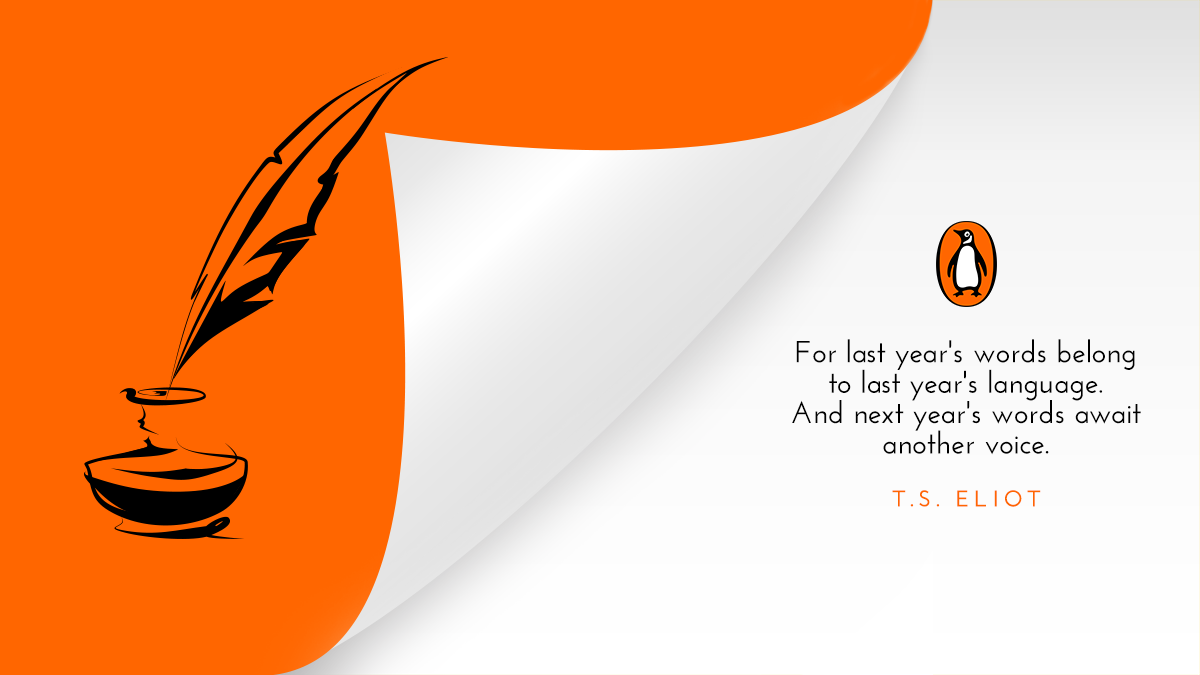
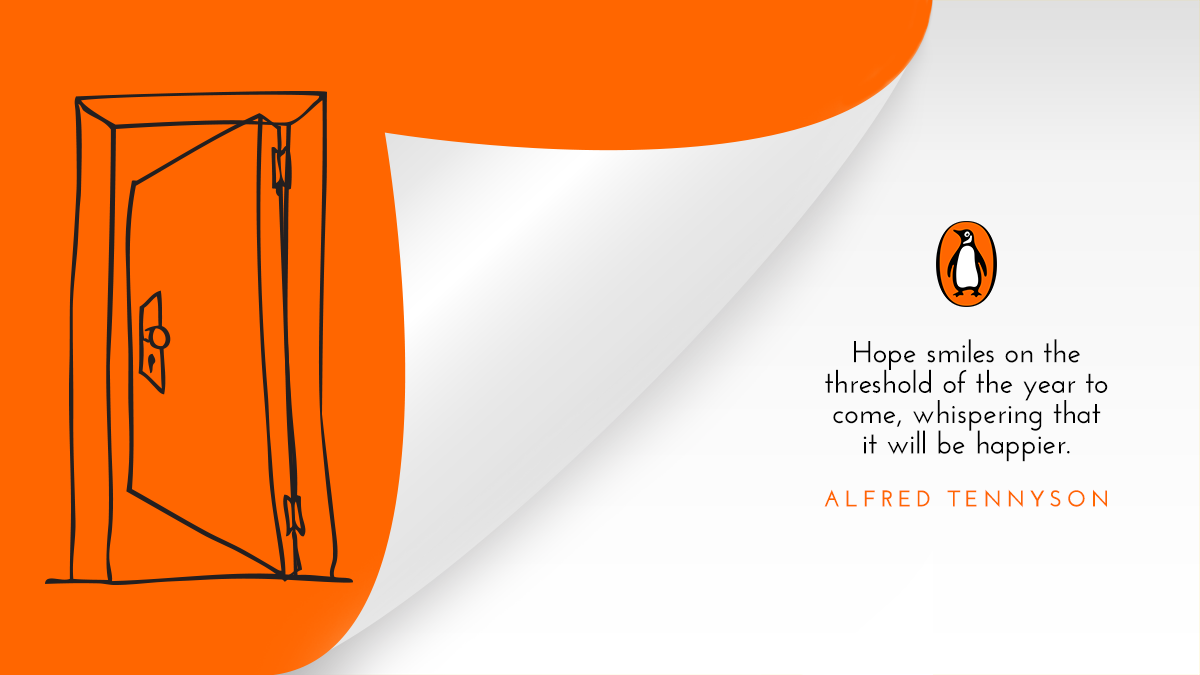

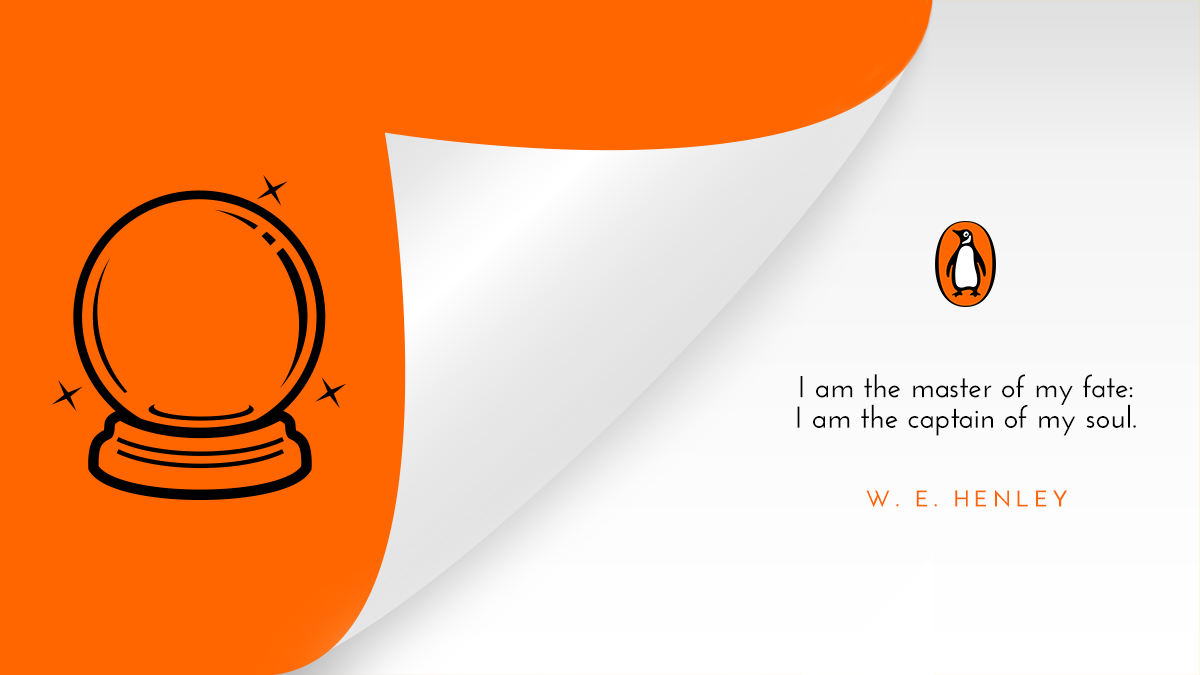

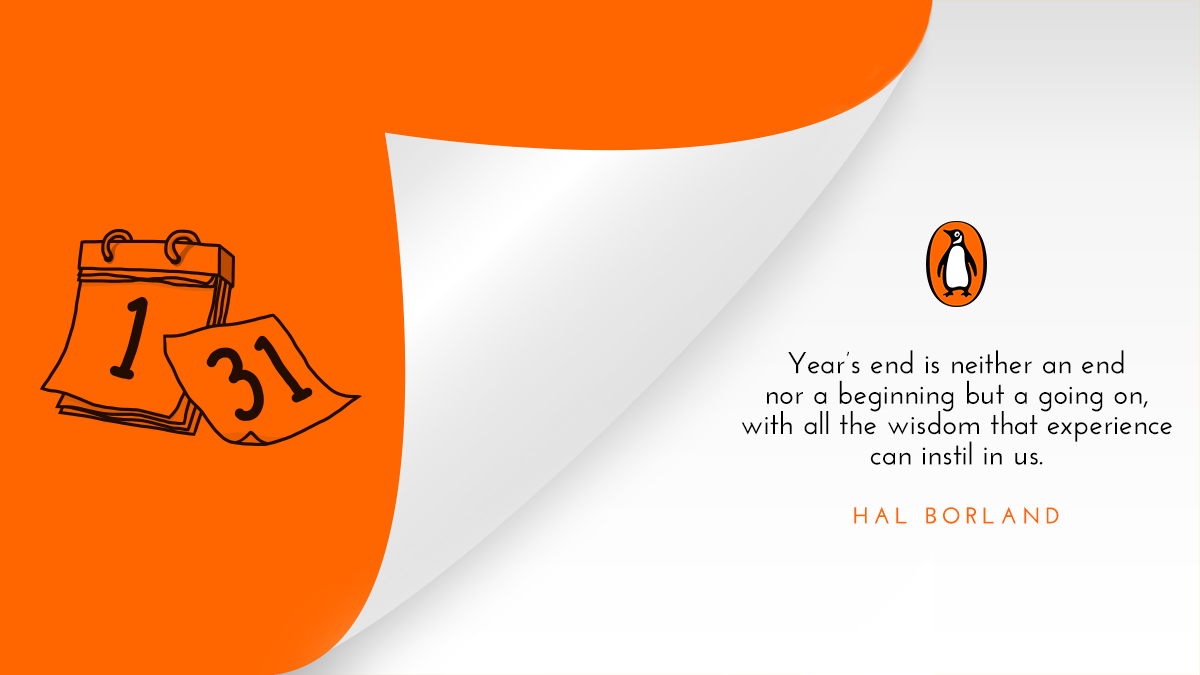
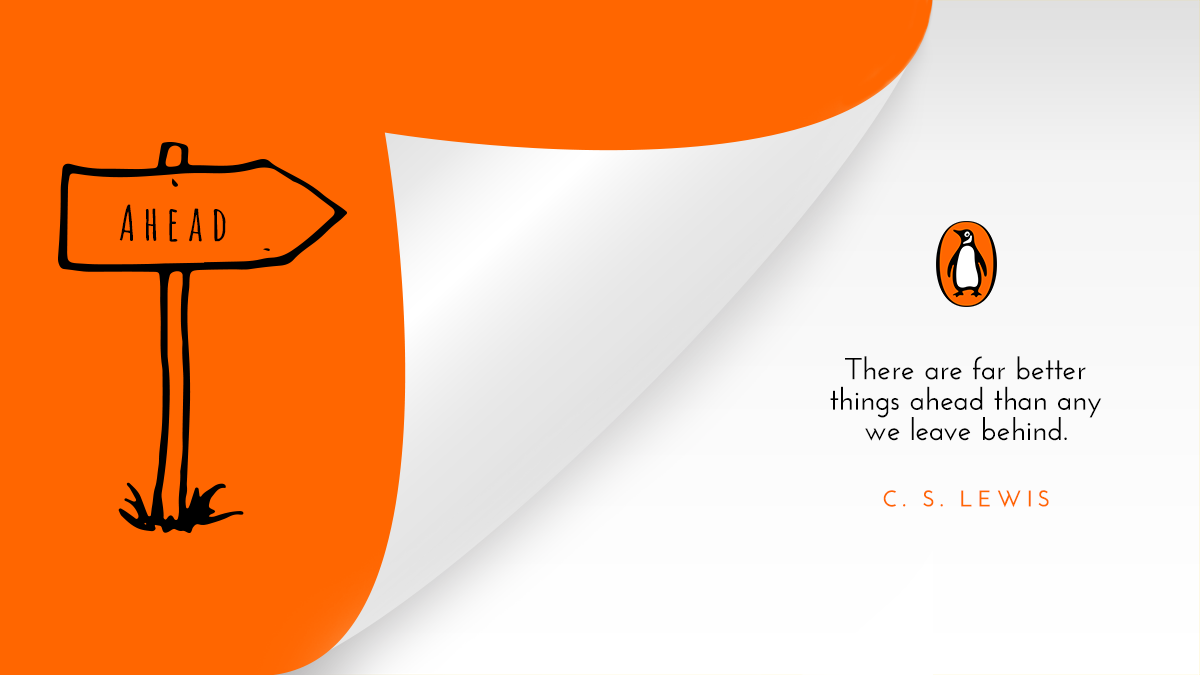

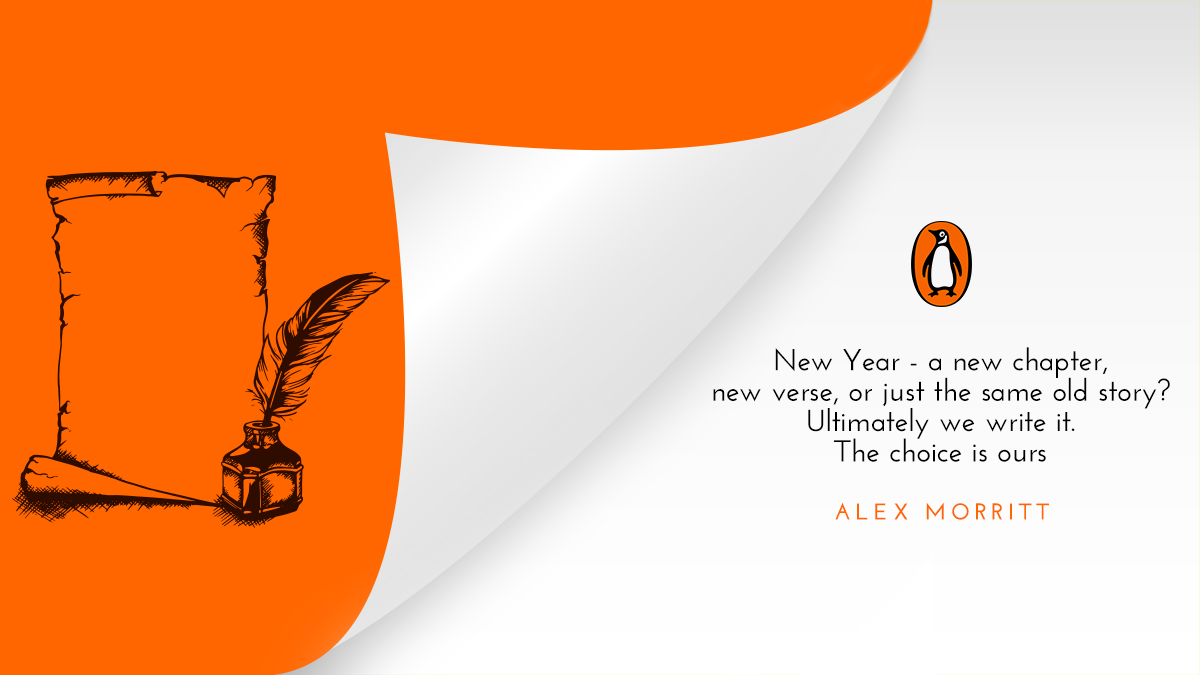
Team Penguin wishes you a happy and bookish new year!
—-












